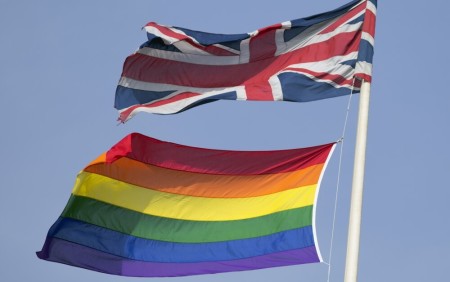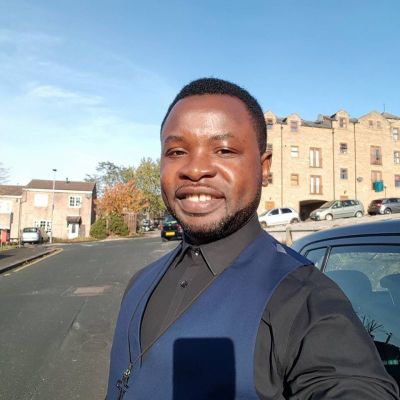Christian student expelled over views on homosexuality in UK wins court appeal

A Christian student who was expelled from his master’s degree studies in social work by the University of Sheffield over a Facebook post about his religious beliefs on homosexuality got a legal victory at the Court of Appeal in England.
A three-justice panel unanimously sided last Wednesday with 41-year-old Felix Ngole, who appealed a 2017 High Court judge’s decision upholding the university’s right to expel him from the two-year program for voicing beliefs online that were deemed "derogatory of gay men and bisexuals.”

The Court of Appeal ordered that there be a new hearing for Ngole held before a “differently constituted” fitness-to-practice panel at the university, stressing that the earlier proceedings were “flawed and unfair to the Appellant.”
The justices ruled that the university “wrongly confused the expression of religious views with the notion of discrimination.”
The appeals court also objected to the university’s stance that “any expression of disapproval of same-sex relations” that could be traced back to the person making it is a “breach of the professional guidelines.”
The panel warned that the university’s stance in the case was “not in accordance” with relevant Health and Care Professions Council code of conduct and guidelines.
“The HCPC professional code and guidelines did not prohibit the use of social media to share personal views and opinions, but simply said that the University might have to take action ‘if the comments posted were offensive, for example, if they were racist or sexually explicit,’” the ruling reads.
According to the Court of Appeal, the expression of theological views “does not necessarily connote that the person expressing such views will discriminate on such grounds.”
“In the present case, there was positive evidence to suggest that the Appellant had never discriminated on such grounds in the past and was not likely to do so in the future (because, as he explained, the Bible prohibited him from discriminating against anybody),” the ruling states.
Ngole was booted from the course in 2015 after he wrote on Facebook that "the Bible and God identify homosexuality as a sin." His post voiced sympathy for Kentucky county clerk Kim Davis, who at the time refused to grant marriage licenses because of her religious objection the U.S. Supreme Court’s legalizing of same-sex marriage.
Ngole stated that “same-sex marriage is a sin whether we like it or not” and that “man’s sentiments would not change [God’s] words.”
He argued that the university was guilty of having a “double standard” and complained that his removal was decided by a fitness-to-practice committee chaired by a professor known for LGBT activism.
However, Deputy High Court Judge Rowena Collins Rice ruled in favor of the university in 2017, stating that “religious speech has to be looked at in a regulated context from the perspective of a public readership.”
The Court of Appeal panel ruled that Collins Rice’s judgment was “premised on an incorrect finding that the University was not suggesting a blanket ban of the sort now in question.”
The panel stressed that the university’s approach to sanction was “disproportionate” because the university didn’t explore a lesser penalty like a warning. Instead, the university “imposed the extreme penalty of dismissing the Appellant from his course, which was inappropriate in all the circumstances.”
“The fundamental fault for the unfortunate course which the disciplinary proceedings took lay with the University,” the opinion states. “The Court cannot finally determine whether the Appellant would have resisted the possibility of tempering the expression of his views or would have refused to accept guidance which would resolve the problem. This requires new findings of fact.”
The court also found, however, that Ngole himself also adopted an "untenable" position by arguing that the "university had no business in interfering with his freedom of expression and it was his right to express his religious views and he would continue to do so just as before, whatever the disciplinary consequences."
Although Ngole's appeal was granted, the court warned that "right to freedom of expression is not an unqualified right."
"[P]rofessional bodies and organizations are entitled to place reasonable
and proportionate restrictions on those subject to their professional codes," the ruling argues. "[A]nd, just because a belief is said to be a religious belief, does not give a person subject to professional regulation the right to express such beliefs in any way he or she sees fit."
The panel contended that "both sides adopted extreme and polarised positions from the outset, which meant that the disciplinary proceedings got off on the wrong track."
According to the Christian Legal Centre, which represents Ngole, last Wednesday’s decision is the “first Court of Appeal judgment regarding freedom of expression of Biblical views which sets limits on the rights of professional regulators to limit free speech on social media.”
“This is great news, not only for me and my family but for everyone who cares about freedom of speech, especially for those working in or studying for caring professions,” Ngole said in a statement. “As Christians, we are called to care for and serve others, and publicly and privately we must be free to express our beliefs, especially when asked, without fear of losing our livelihoods.”
Christian Legal Centre Chief Executive Andrea Williams called Ngole’s victory a “watershed case for Christians.”
“It is shocking that the university sought to censor expression of the Bible in this way, and we hope this sends out a message of freedom across all universities and professions that Christians and others should be allowed to express their views without fear of censorship or discipline,” she stated.
“Due to Felix's sacrifice, Christians and others now know that it is their legal right to express Biblical views on social media or elsewhere without fear for their professional careers. This is a major development of the law and must be upheld and respected in current and future Christian freedom cases.”
A Sheffield University spokesperson said that the school is “considering its response to the judgment."
"[F]or students studying on courses that lead to professional registration, we have a responsibility to look at how any concerns raised could impact a student's fitness to practice once registered,” the spokesperson’s statement reads, according to The Telegraph.
"Fitness to practice committees use national professional guidance and often need to consider a student's insight and consideration about their chosen profession. This case was therefore not part of the university's standard disciplinary procedures or about its support of freedom of speech.”
"The court dismissed the majority of the appeal submitted by the applicant and has only upheld one aspect to do with early procedural processes,” the university’s statement concluded.
Follow Samuel Smith on Twitter: @IamSamSmith
or Facebook: SamuelSmithCP





















